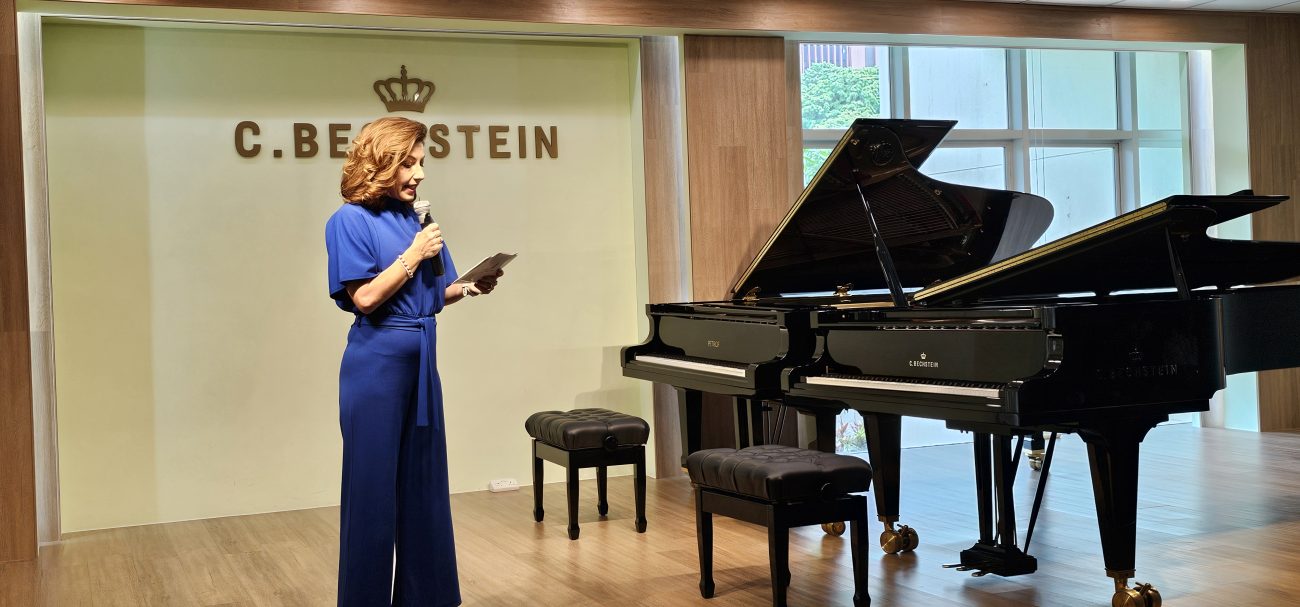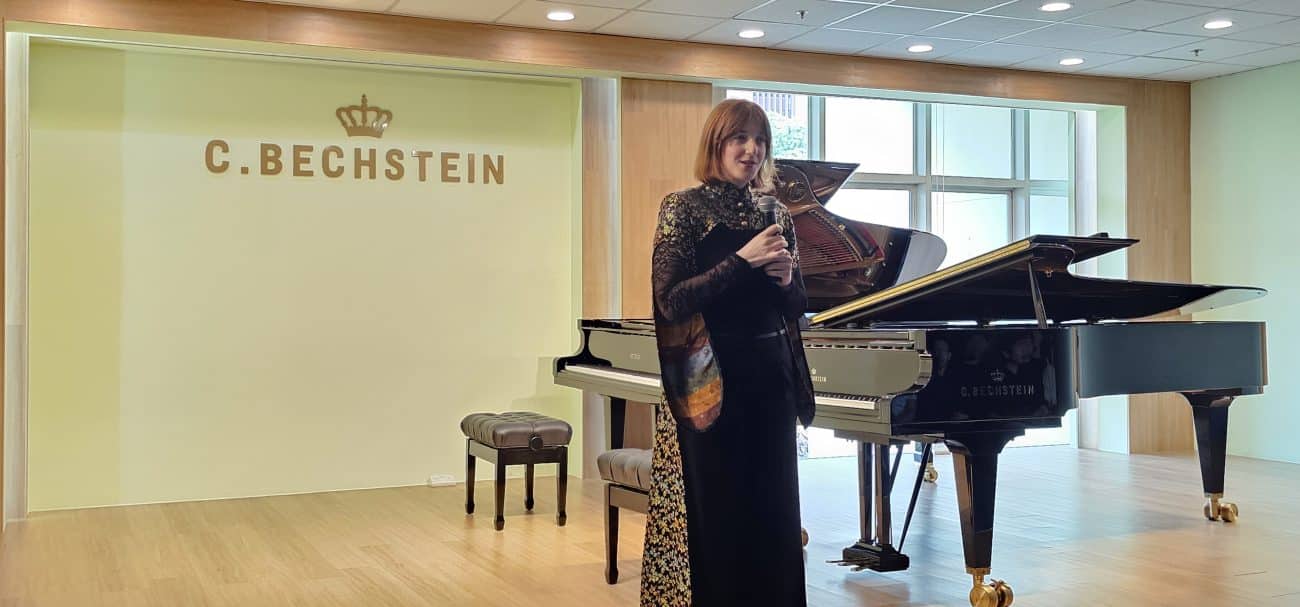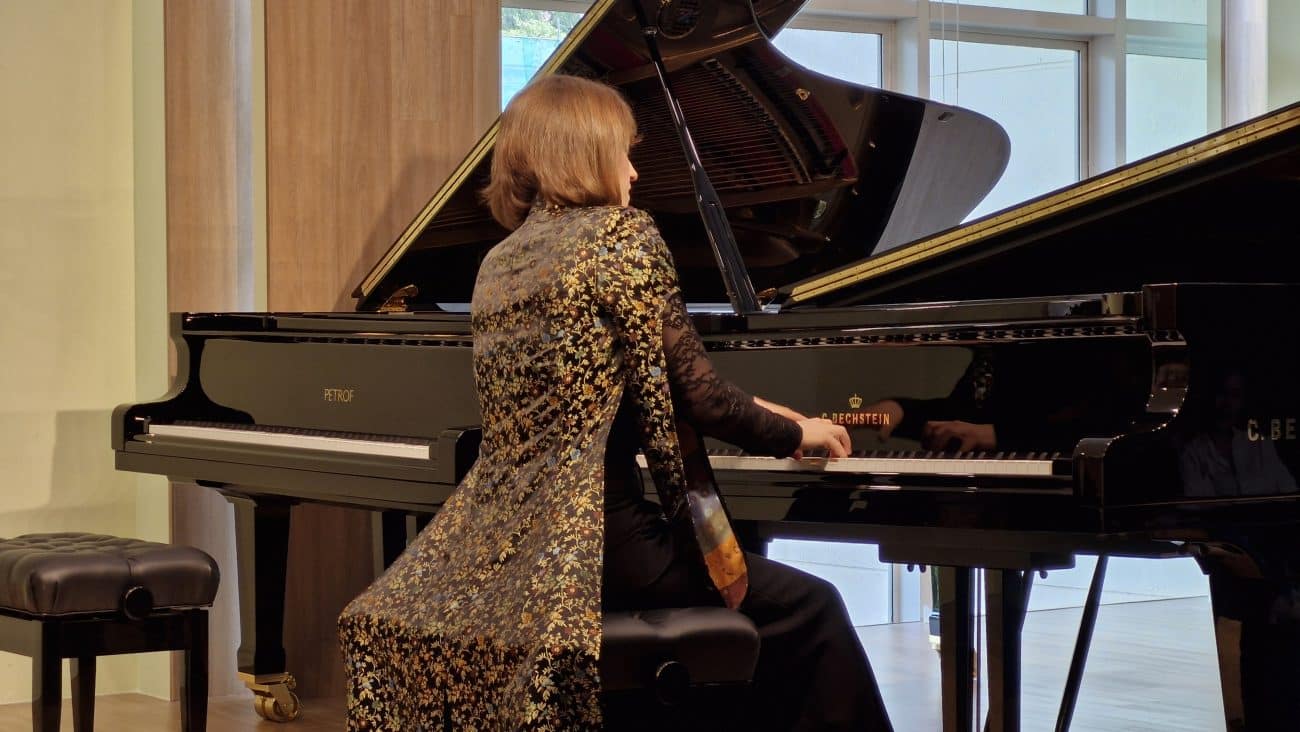Alexandra Balog’s Inspiring Lecture-Recital in Singapore: Tales Told on Two Pianos
Bechstein Music World, 19 June 2025
On a quiet Thursday afternoon, the recital hall at Bechstein Music World came to life with a unique musical event that brought together history, heritage, and heartfelt performance. The audience was treated to an insightful and beautifully curated lecture-recital by Hungarian pianist Alexandra Balog, who made her Singapore debut with Two Pianos & the Sound of Europe.

The event began with a welcome address by Ms Edit Kerekes, the Chargé d’Affaires of the Embassy of Hungary in Singapore, who introduced Alexandra as a “gifted storyteller” and “a treasure” — not only for her artistry but also for her passionate promotion of Hungarian folk music and her contributions to music education. It was a fitting introduction to what unfolded as a personal, illuminating journey through repertoire spanning styles, cultures, and centuries.
Alexandra herself emerged before the recital to share the theme of the afternoon: a conversation between two pianos, represented by the C. Bechstein D282 and the PETROF Monsoon. In a playful and perceptive experiment, she performed several shorter works — including miniatures by Kodály and Schubert — once on each piano, letting listeners hear how the instruments’ voices contrasted in colour, tone, and atmosphere. In one of the later works, she even alternated between the two pianos mid-piece — like two singers taking turns, sharing musical lines in dialogue.

Her program was thoughtfully arranged into three segments. The first explored Hungarian folk-inspired music by Zoltán Kodály and Béla Bartók — two composers who, while drawing from the same folk traditions, approached them in markedly different ways. Kodály, she explained, remained true to the raw and often sombre character of folk songs, depicting not just dances but also laments and rural struggles. Bartók, on the other hand, stylised folk material with more dramatic flair and a composer’s touch for abstraction. Alexandra’s commentaries brought the pieces to life, helping many in the audience — including students encountering these works for the first time — discover new sounds and perspectives.
The second segment centred on pieces personally meaningful to the artist — Mozart’s Fantasie in C minor and Chopin’s Nocturne Op. 48 No. 1. Alexandra drew connections between the two, noting how one opens and the other closes in the same key, and how both share a sense of introspective drama and emotional depth.
The final portion featured Romantic-era favourites, such as Chopin’s Fantasie-Impromptu, Schubert’s Impromptu in A-flat Major, and Liszt’s poetic transcription of Ständchen — music that felt at home in the warm acoustics of the recital hall.

At several points during the afternoon, Alexandra reflected on the nature of the concert experience itself. She shared that in her conversations with fellow musicians, many agreed that smaller, more intimate venues often offered the most rewarding performance experiences — allowing a closer connection between performer and audience. It was a fitting sentiment for the Bechstein Recital Hall, with its natural light and inviting scale. She also reminded us that Franz Liszt was the one who essentially invented the modern piano recital, a tradition that continues to evolve in personal and imaginative ways — just as she demonstrated.
What made this recital so memorable wasn’t just the rare opportunity to hear two grand pianos in such direct comparison, but the depth of Alexandra’s musical storytelling. Her spoken introductions, full of insight and personality, invited the audience into each piece in a way that was both educational and engaging.
We hope this inspiring afternoon — one that blended scholarship, spontaneity, and soul — left listeners of all ages, especially the many young students present, with a deeper appreciation for the richness of European piano music, and a curiosity to explore beyond the familiar.
Heartfelt thanks go out to Alexandra Balog for her debut performance in Singapore, and to the Embassy of Hungary in Singapore for their generous support of this special event.